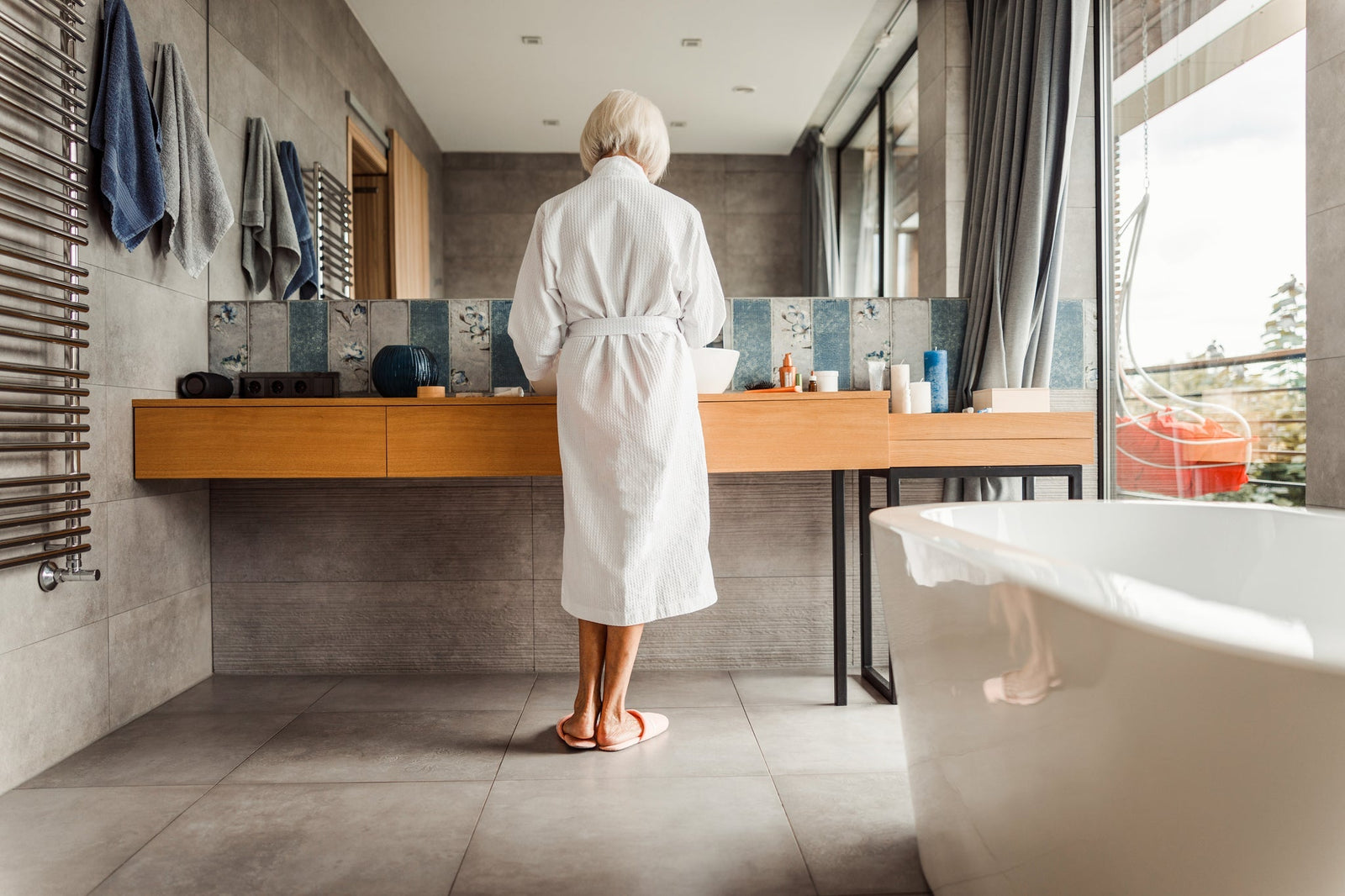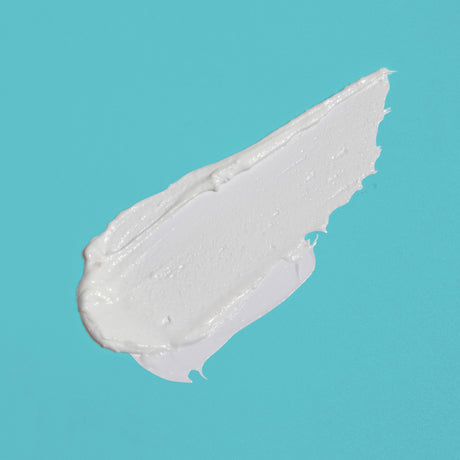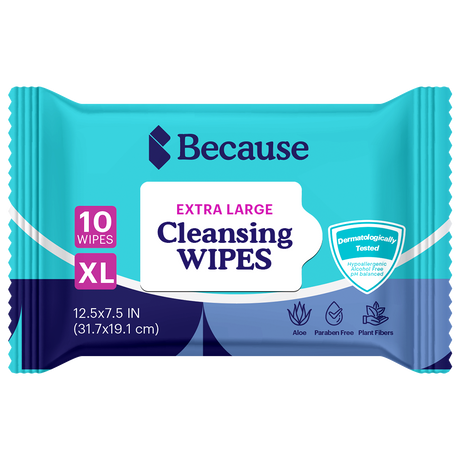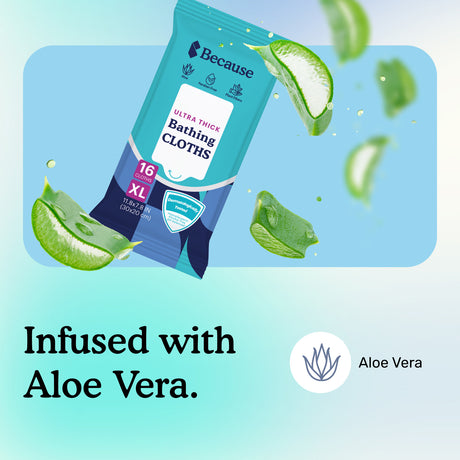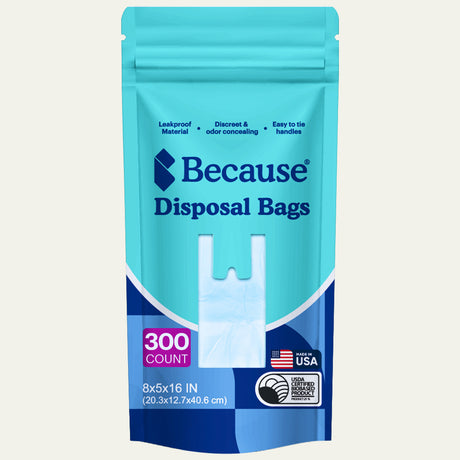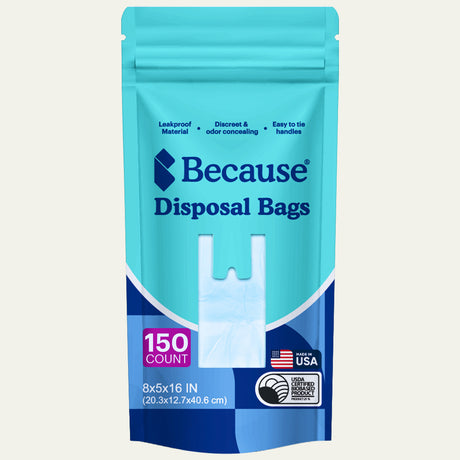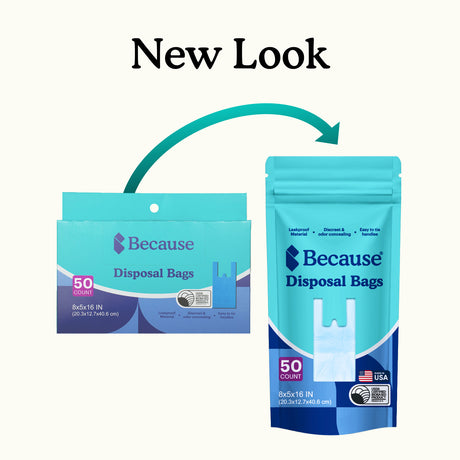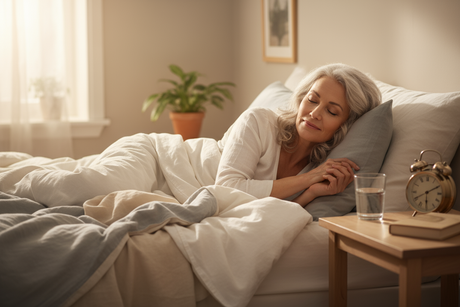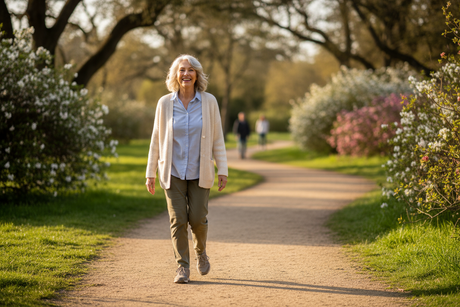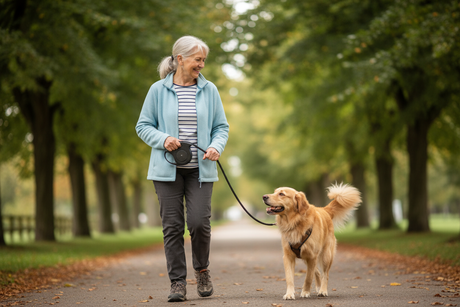Good hygiene promotes health, well-being, and comfort at any age, but it’s especially important for older adults. Seniors are more likely to develop skin conditions, infections, and oral care problems due to a lack of proper hygiene. Plus, they're more likely to face obstacles when completing personal care tasks. Understanding why personal hygiene for elderly people is difficult is the first step to finding solutions that allow older adults to look and feel their best.
10 Vital Tips for Elderly Personal Hygiene
To help with elderly personal hygiene, caregivers and loved ones can do all or some of the following.
1. Establishing a Daily Routine
Older people benefit from a consistent routine that they can follow daily. Family and professional caregivers can devise a schedule of tasks that seniors can complete in the same order. Once they become accustomed to the daily routine, they are more likely to realize that they missed an important step, such as brushing their teeth before breakfast or changing clothes before bed.
The schedule can also encourage good communication between caregivers. Tasks like cleaning the bathroom, washing clothes, replenishing toiletries, and sanitizing surfaces to kill germs can also appear on the list to ensure that older adults have a clean, healthy living environment and the supplies they need to care for themselves.
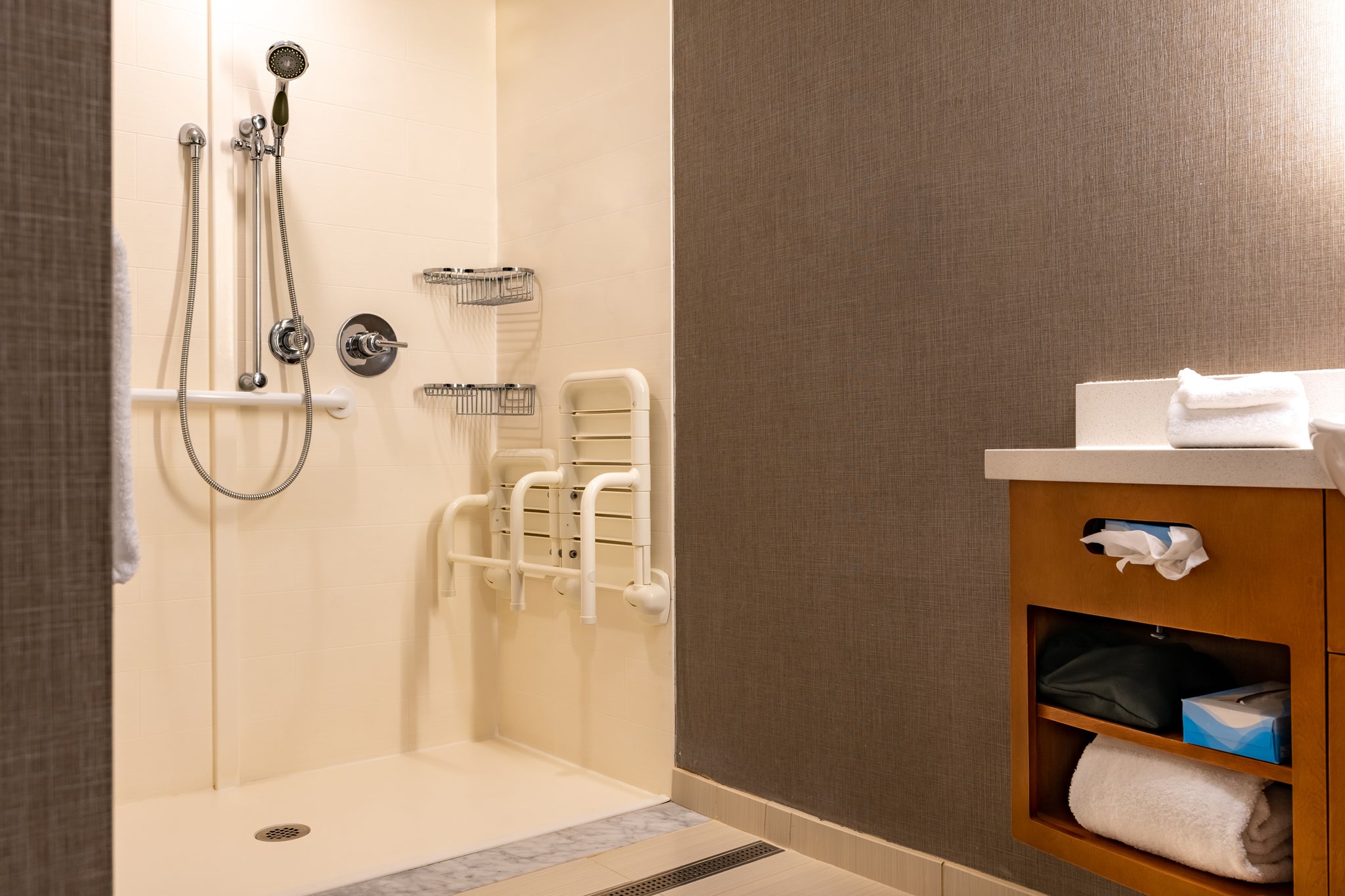
2. Making Safety Modifications to Prevent Slips and Falls
Safety modifications can allow individuals with limited mobility to perform self-care tasks independently. Some modifications to consider include:
- Adding a walk-in tub
- Installing a shower seat or handheld shower head
- Placing grab bars in tubs, showers, and around the toilet
- Using raised or lowered toilet seats to assist with transferring
3. Managing Incontinence with Dignity
Incontinence is a significant cause of poor personal hygiene, but bladder protection products can provide a good solution. Depending on their needs, seniors can wear incontinence underwear or pads throughout the day or only at night to deal with accidents.
In addition to finding the right bladder protection products, caregivers should ensure proper disposal of all incontinence supplies to keep conditions sanitary in the home. Also, take notice of any incontinence odors on clothing and bed linens or around the house. Odor-removing sprays can help neutralize these unwanted scents as needed.
4. Respecting Modesty and Privacy
Hygiene is a private matter, and aging parents may not feel comfortable discussing some issues with their children. Respect boundaries when discussing tasks like going to the bathroom and bathing. Ask if they would prefer to talk about this with a doctor or a specific caregiver if they seem uncomfortable.
Use positive language when discussing poor hygiene and avoid assigning blame. Make it clear that your primary concern is preventing health issues and that your intent isn't to criticize or embarrass them.
A loss of privacy can be detrimental to a person's self-worth. Allowing senior citizens to perform as many hygiene and grooming tasks on their own as possible can help them preserve their dignity and modesty.
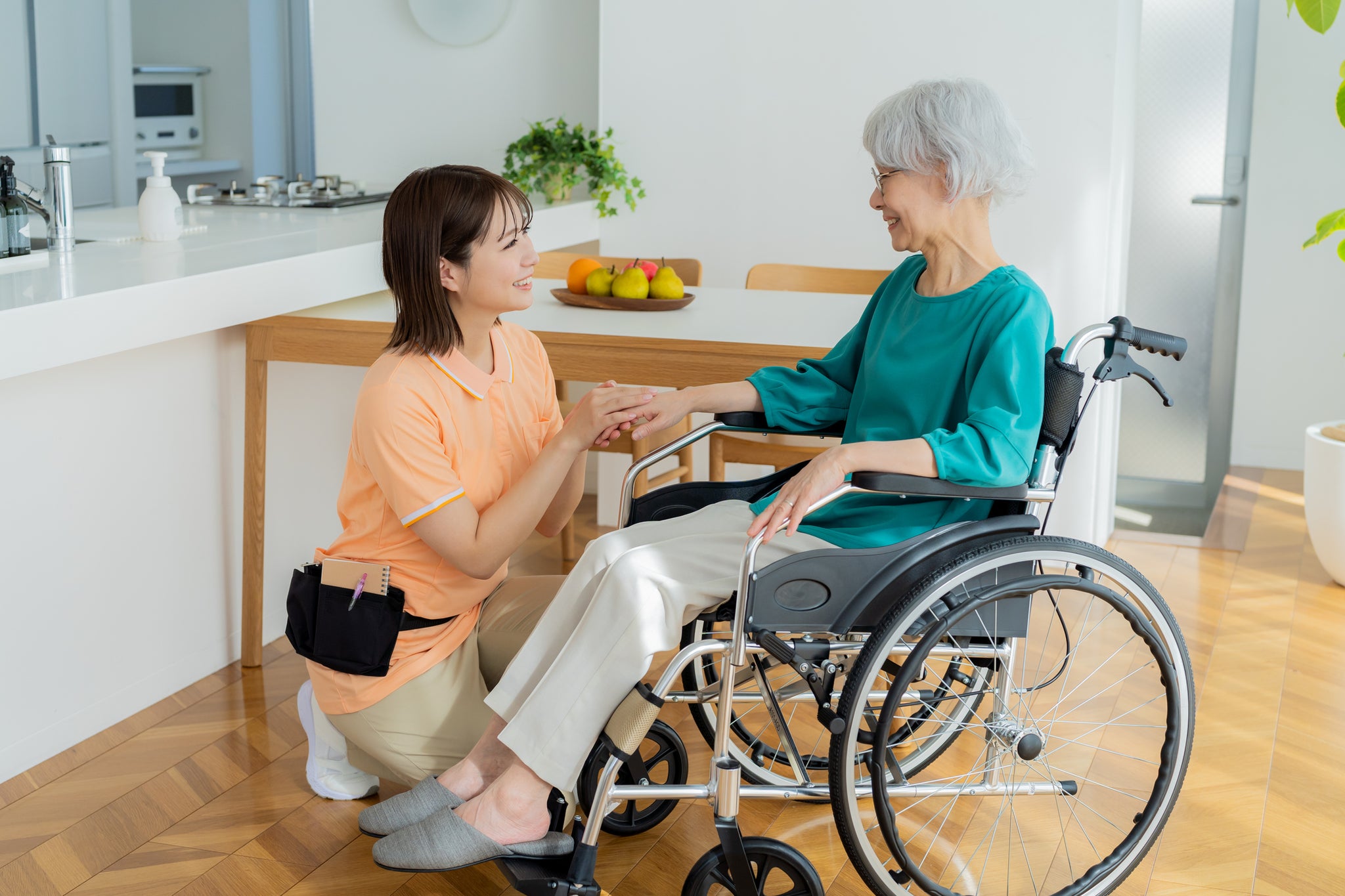
5. Investing in Helpful Hygiene Aids and Supplies
Many solutions are available for challenges to good hygiene practices. Consider what specific issues stand in the way of regular bathing, toileting, and other activities of daily living, and then look for things that can make the tasks easier. For example, switching from bar soap to liquid body wash and providing long-handled shower brushes can enable people with limited mobility to cleanse skin without having to reach or bend, while cleansing wipes or bathing cloths can make cleaning up after going to the bathroom or changing bladder protection simpler.
6. Maintaining a Hygienic Living Environment
To control body odor and fight germs, wash clothing after wear. This is especially important for undergarments and pajamas. Washing towels and bed linens weekly can help keep conditions sanitary. If an incontinence-related accident occurs, wash linens more frequently. Launder towels immediately if they show visible dirt or soiling.
7. Feminine Hygiene Considerations for Seniors
Maintaining feminine hygiene in later years requires thoughtful consideration of individual needs and challenges. For instance, opting for gentle, fragrance-free feminine wipes or specialized cleansing cloths can enhance comfort and convenience during bathroom visits or changing undergarments. Additionally, investing in ergonomic tools, such as long-handled cleansing brushes or easy-grip toiletry items, can promote independence and ensure thorough hygiene practices without strain or discomfort.
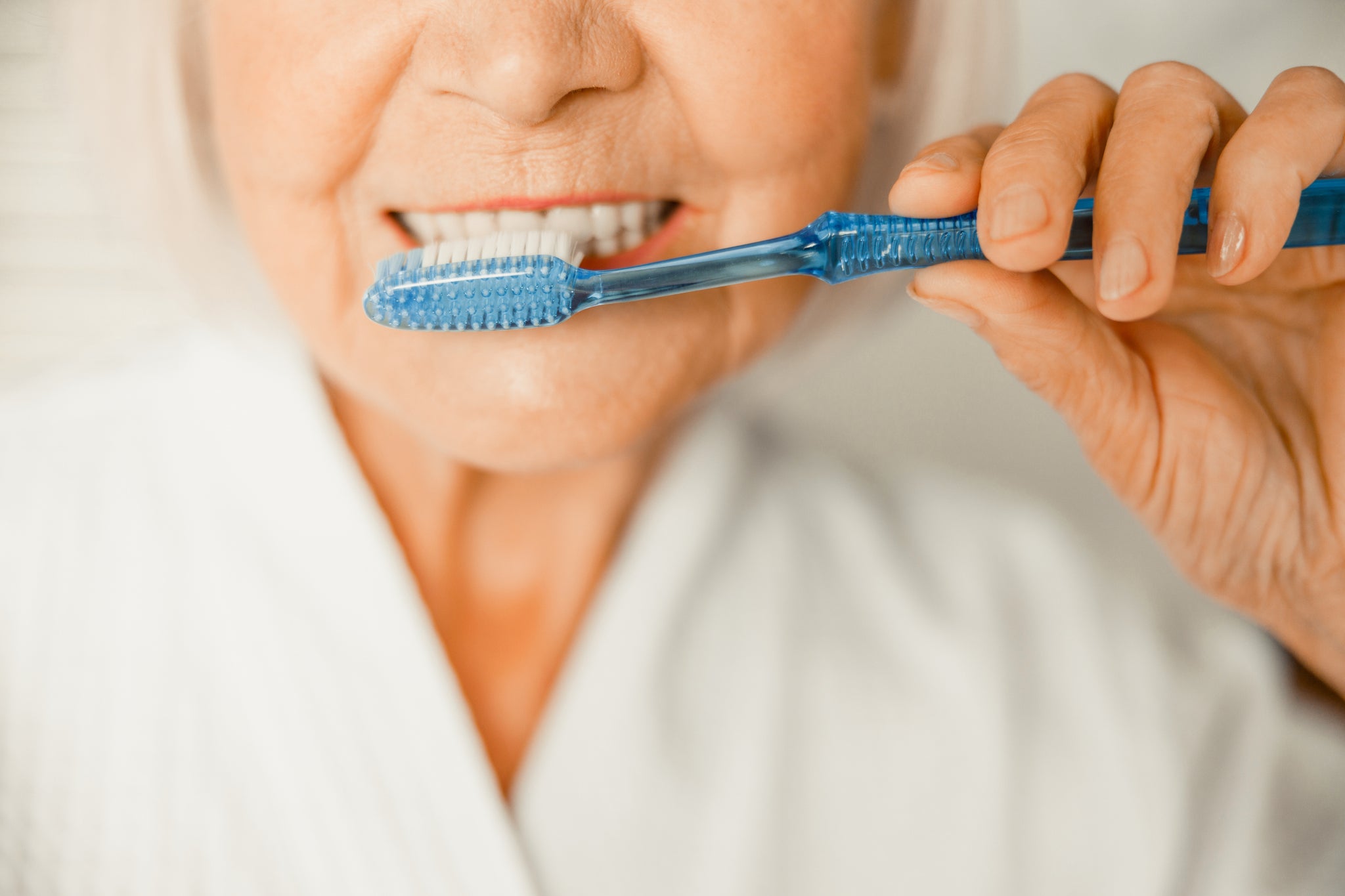
8. Prioritizing Oral Hygiene
Oral hygiene is linked to good health. A lack of ongoing dental care raises the risk of serious infections, pneumonia, and cardiovascular disease.
Certain medical conditions common in seniors, like diabetes and osteoporosis, can worsen oral health. As a result, oral hygiene is a top priority for older adults. Some oral care tips for elderly hygiene include:
- Brushing twice daily
- Flossing once daily
- Cleaning dentures daily
- Properly storing dentures between wears
- Reporting problems with denture fit to dentist
- Seeing a dentist at least once or twice per year
9. The Importance of Skin Integrity
Skin care is essential for people with incontinence. Properly cleansing can reduce the risk of infections, and moisturizing can ease inflammation. When irritation does arise, incontinence skin care products can help support healing. If used regularly, barrier cream can also help maintain skin integrity.
For bedridden seniors, regularly checking the skin for pressure sores is essential for preventing serious infection. Older adults with diabetes benefit from foot care checks to look for wounds and sores.
10. Preventing Body Odors
The following elderly personal hygiene tips are great ways to help seniors smell fresh:
- Clean face, armpits, and private area daily
- Wash hands after using the bathroom
- Bathe regularly, making sure to clean the body thoroughly
- Clean hair with shampoo when showering or bathing
- Cleanse skin folds daily and keep them dry
- Use deodorant
- Change bladder protection products promptly to control incontinence odors
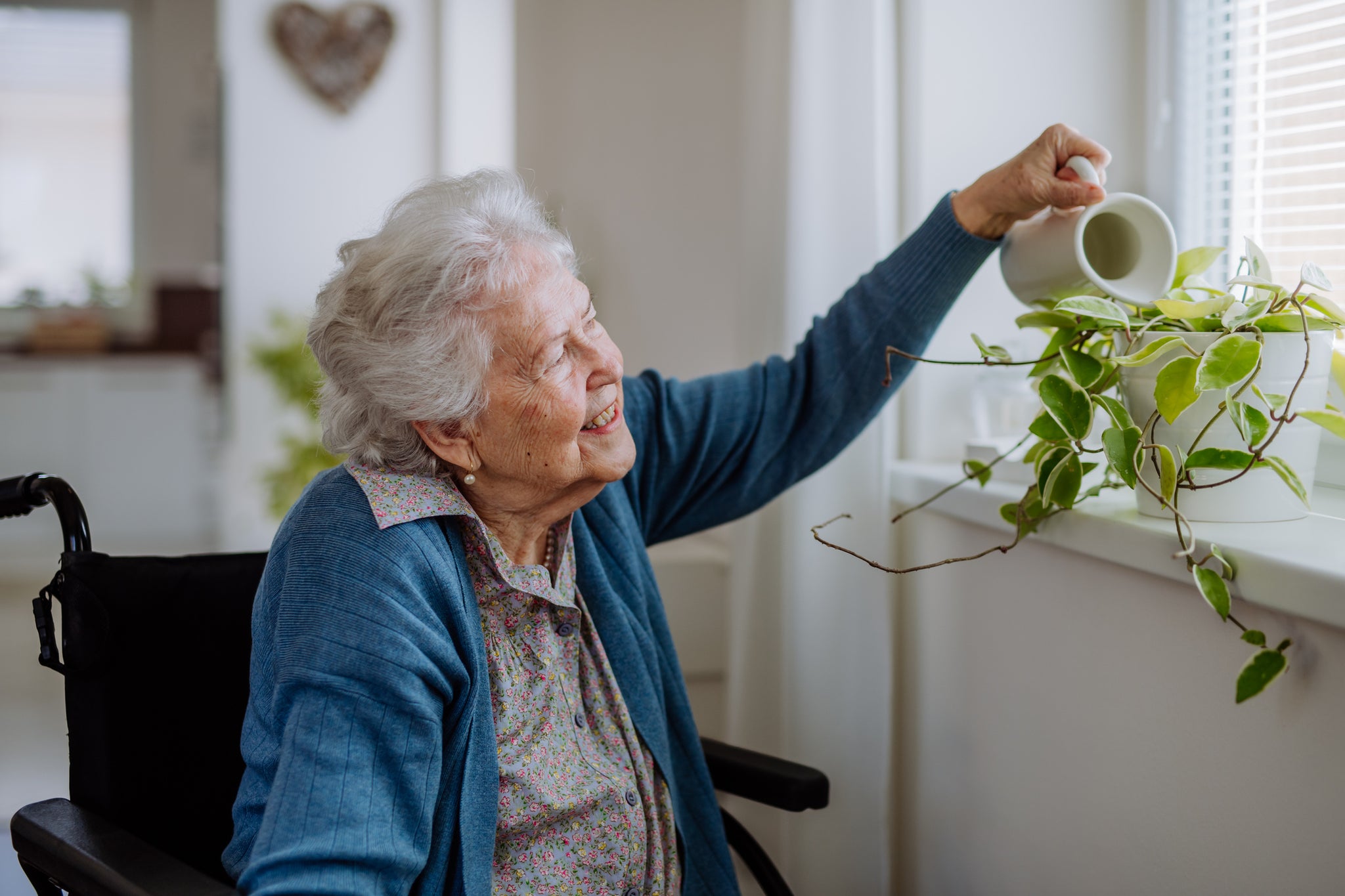
Why Do Seniors Struggle with Personal Hygiene?
Mobility challenges, declining cognitive function, depression, and dampened senses can all complicate personal hygiene for elderly people. Caregivers and family members should consider which obstacles seniors face when determining what type of assistance and support to provide.
Mobility Challenges
Around 30% of people over the age of 70, and most adults over 85 have mobility issues. Difficulty walking and standing can make it hard for seniors to shower or safely get in and out of the tub. In addition, the risk of elderly incontinence increases when people are unable to walk to the bathroom quickly. Reduced flexibility can make wiping after using the bathroom and washing from head to toe difficult. Arthritis pain and stiffness may interfere with tasks like cleaning dentures, combing hair, and trimming nails.
Declining Cognitive Function
One out of every nine adults has subjective cognitive decline, an awareness of memory, and thinking problems. These individuals are usually able to retain their independence but may not remember to perform key parts of their daily routine, like washing their hands or showering.
For the more than 5 million people living with dementia and Alzheimer's disease, elderly personal hygiene is even more challenging. These seniors may need caregivers' assistance in completing most or all daily living tasks. Dementia also raises the risk of incontinence, further complicating hygiene.
Depression
More than 2 million seniors suffer from clinical depression, and less than 3% of them receive treatment from mental health professionals. Untreated depression can rob a person of energy. Its effects can make it hard for older people to perform tasks like taking a shower or completing their dental care routine. Depression also impacts self-esteem, making self-neglect more likely.
Dampened Senses
Sensory ability often declines with age, and vision problems complicate skin care and oral hygiene. Tastebuds tend to weaken as we age, leading to bad breath due to food stuck in dentures going unnoticed. A reduced sense of smell may also make elderly individuals unaware that they need to change incontinence products or take a bath.
Understanding the Importance of Personal Hygiene in the Elderly
A lack of good personal hygiene can lead to various issues for seniors. Proper elderly personal hygiene can reduce the risk of hygiene-related diseases and conditions such as:
- Athlete's foot
- Chronic diarrhea
- Head lice
- Ringworm
- Scabies
- Skin infections like folliculitis
- Swimmer's ear
- Tooth decay and gum disease
Reduced immune system function in seniors can make these conditions a more serious threat to physical health. Not only does proper hygiene help protect against these illnesses, but it can also contribute to overall health for people with chronic conditions like type 2 diabetes. Regular hand washing and other grooming tasks can lead to fewer incidents of colds and flu, increasing the importance of personal hygiene for older people with impaired immune systems.
Elderly hygiene also impacts how older people interact with others around them. A consistent hygiene routine makes a person less likely to develop halitosis and body odor. Daily grooming also ensures that older people look their best. This can lead to more positive interactions with friends, neighbors, and community members. It can also boost self-confidence for those looking to date and enjoy sexual intimacy during their golden years. Conversely, poor elderly personal hygiene can increase the risk of isolation, contributing to depression and anxiety in seniors.
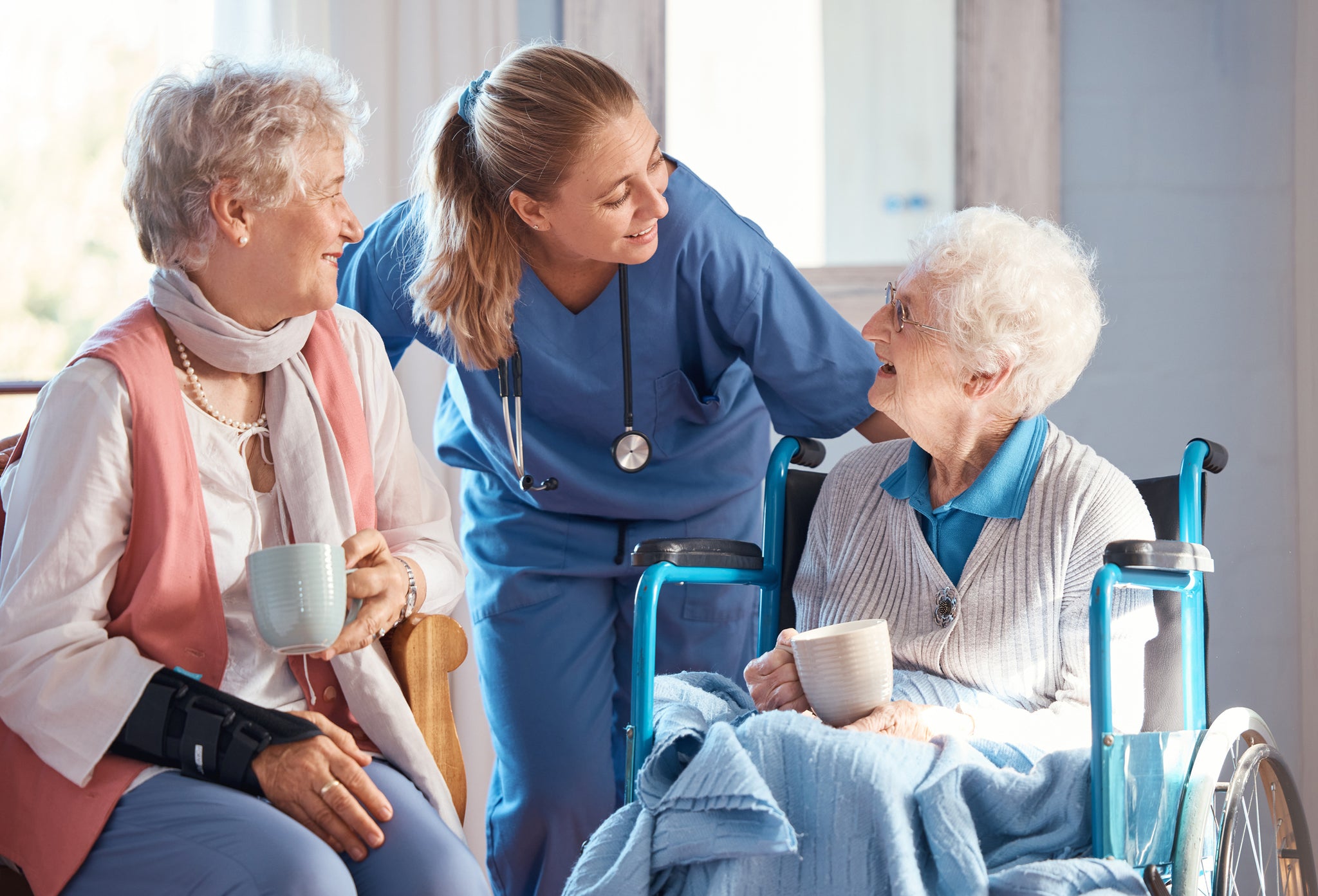
When to Consider Hiring Professional Help
Hiring a home care aide who can assist with daily living tasks and perform household chores can benefit seniors and their families. Here are some signs that it may be a good idea to hire a professional:
- Your loved one is showing signs of worsening memory loss or physical decline
- You find it hard to both care for your loved one and keep their home in good condition
- You feel burned out or overly stressed trying to assist your loved one on your own
- You're unable to provide the daily assistance that your loved one needs
If it’s time to get outside help, find out what elder care resources are available in your area. Your local Agency or Authority on Aging office is a great starting point.
Does your loved one struggle with incontinence? Take our bladder protection quiz and get a starter pack to try!
Sources:
Kizilarslanoglu, M. C., Kuyumcu, M. E., Yesil, Y., Halil, M., & Cruz Jentoft, A. J. (2020). Cognitive impairment in heart failure: A comprehensive review. Frontiers in Physiology, 11, 881. Retrieved from https://www.frontiersin.org/articles/10.3389/fphys.2020.00881/full
Centers for Disease Control and Prevention (CDC). (2020). Subjective cognitive decline. Retrieved from https://www.cdc.gov/aging/data/subjective-cognitive-decline-brief.html
Centers for Disease Control and Prevention (CDC). (2020). Alzheimer's disease and healthy aging. Retrieved from https://www.cdc.gov/aging/publications/features/Alz-Greater-Risk.html
Mental Health America (MHA). (n.d.). Depression in older adults: More facts. Retrieved from https://www.mhanational.org/depression-older-adults-more-facts
